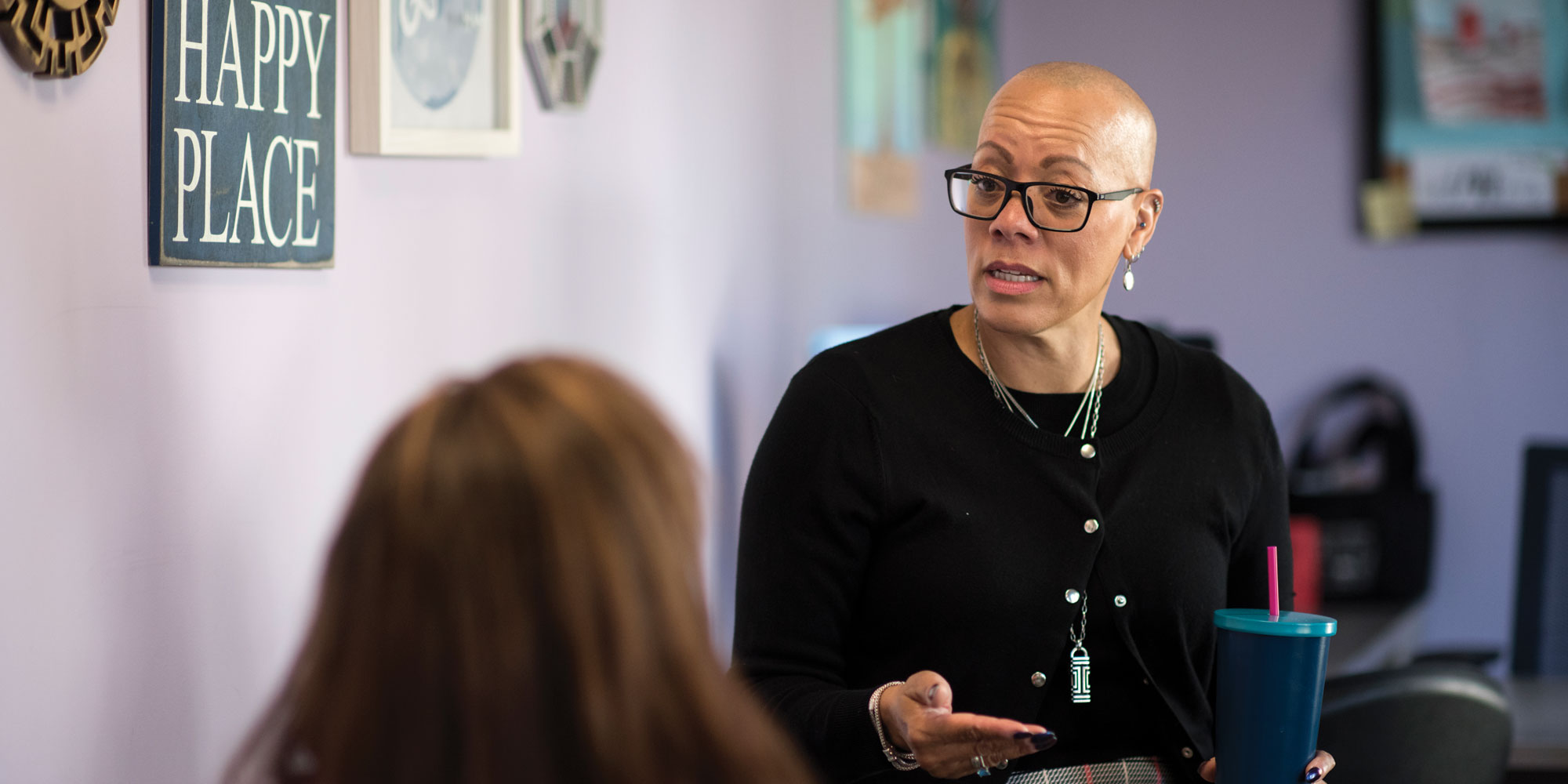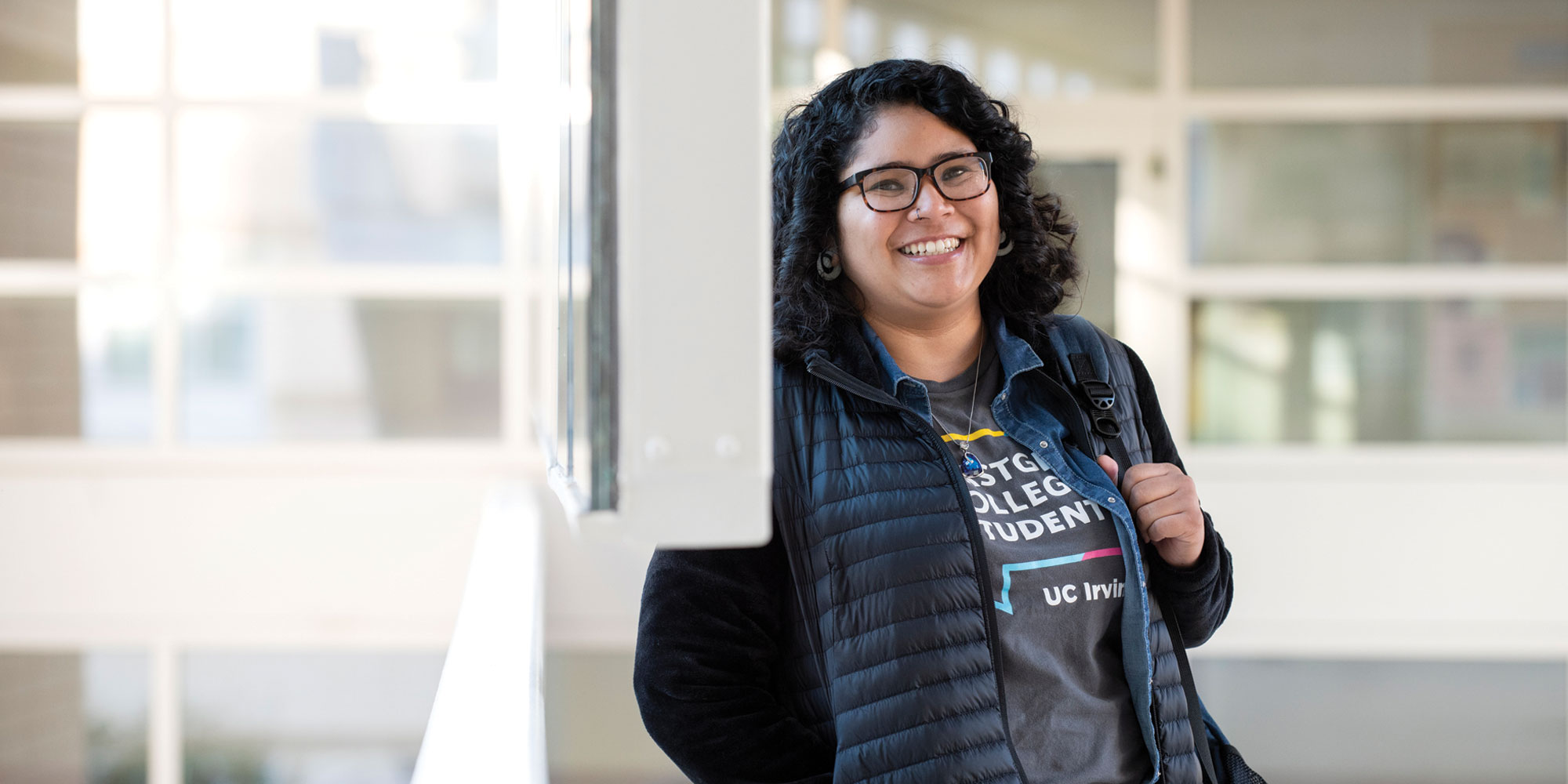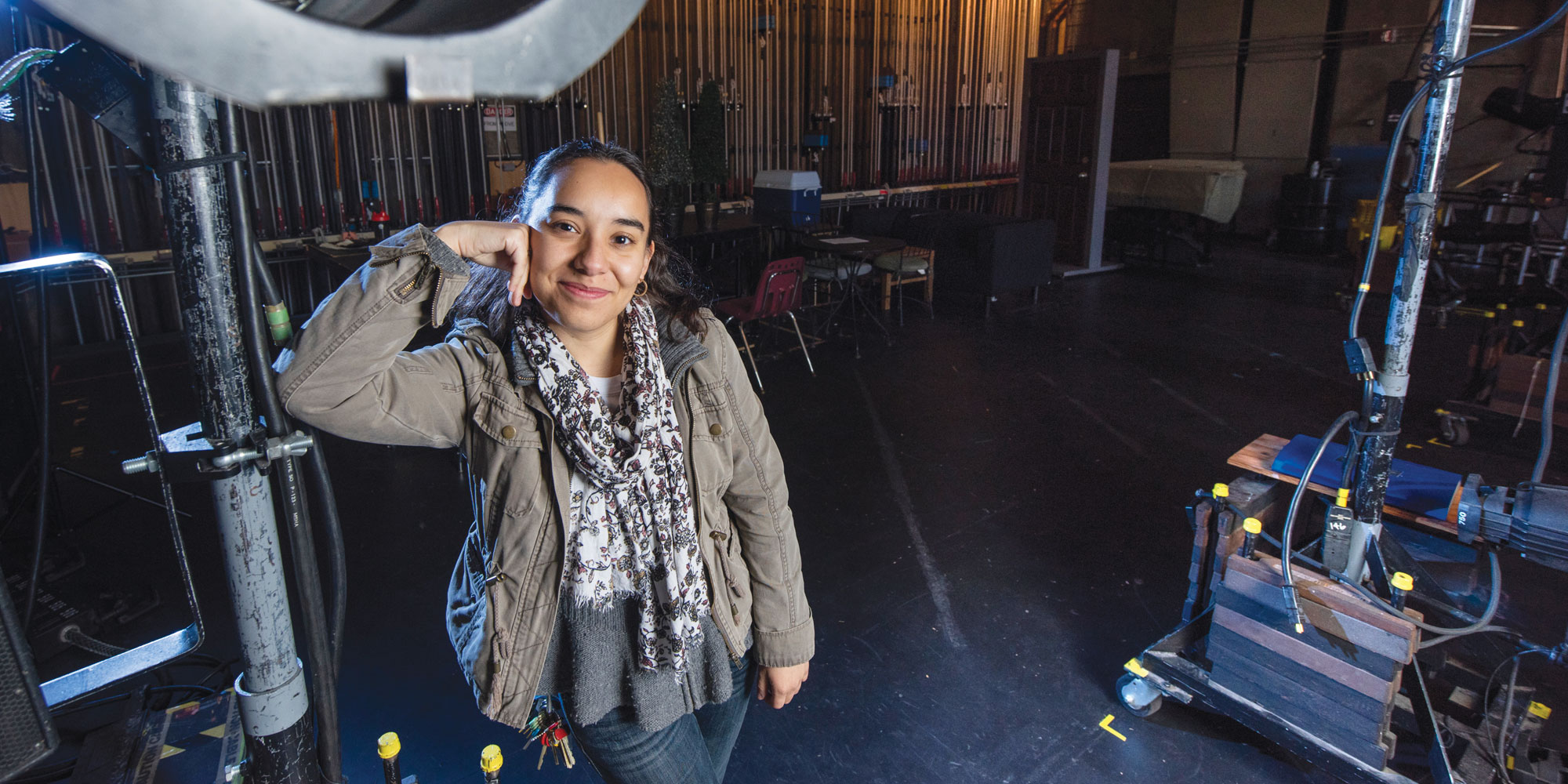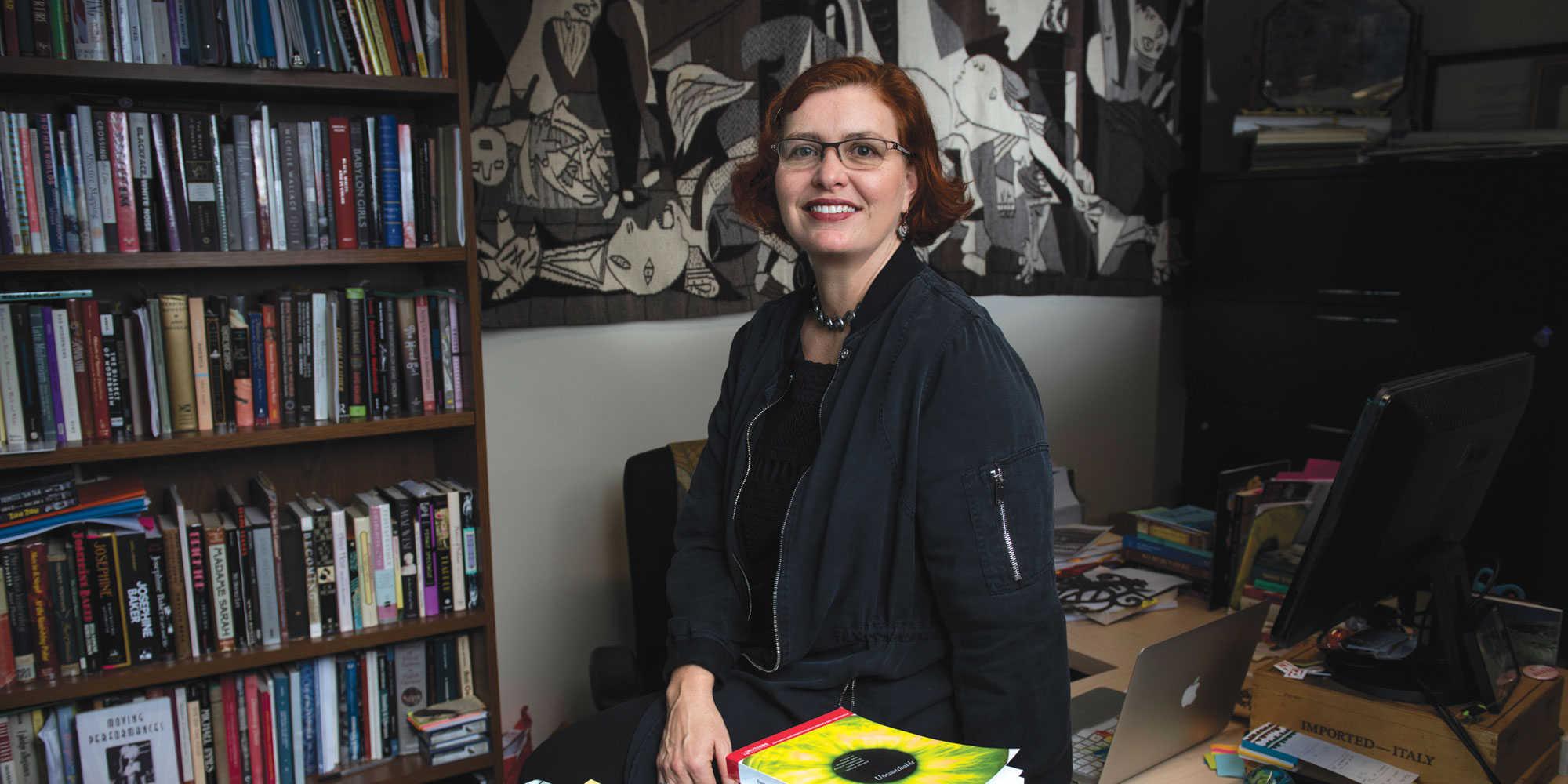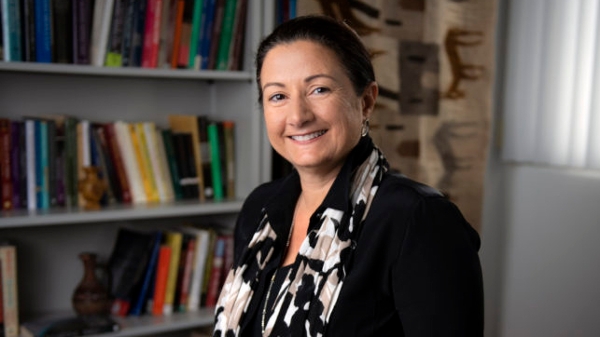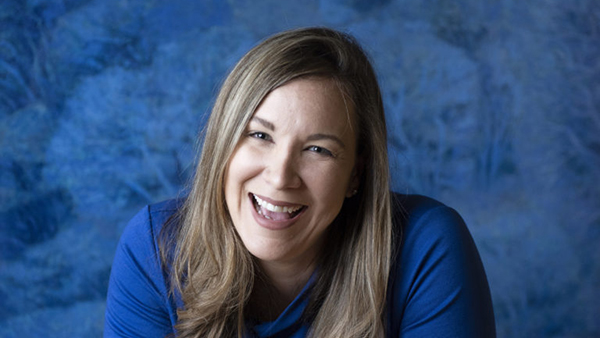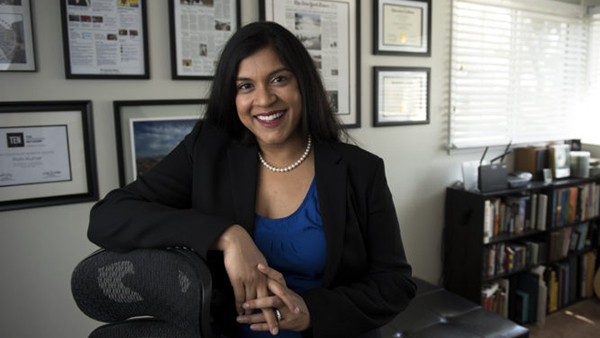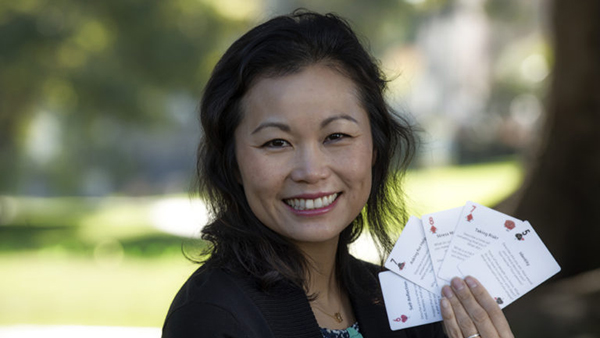- “Girl on Fire,” by Alicia Keys
- “Finesse,” by Bruno Mars with Cardi B
- “Mighty Mighty,” by Earth, Wind & Fire
- “Stand!” by Sly & the Family Stone
“Claim your space, and don’t ask permission to say what you need to say."
Inside the Womxn’s Hub, a cozy, lavender room in UCI’s Cross-Cultural Center, an eclectic array of signs decorates the walls: “Relax,” one reads. Another says “Love.” But the largest placard best captures director Tamara Austin’s philosophy on the space: “This is my happy place.”
A Philadelphia native with a master’s degree in social work from the University of Pennsylvania, Austin opened the W-Hub, a resource center for UCI women, in fall 2016. It functions as a haven “where women can feel supported, speak their minds and find what they need to thrive on campus,” she says. “Here, we’re invested in making women successful and heard.”
The W-Hub attracts dozens of students, faculty and staff each day. Some drop by to grab some chocolate or a cup of tea from Austin’s generous supply; others come for the resources provided (including informational pamphlets, feminine hygiene products and school supplies); and many just want to talk to one another in what Austin calls an “open space where people can learn with no judgment.”
“Women can have conversations here that they’re often told not to have,” she says. “Claim your space, and don’t ask permission to say what you need to say. That’s the No. 1 thing I tell the women I meet.”
- Megan Cole
